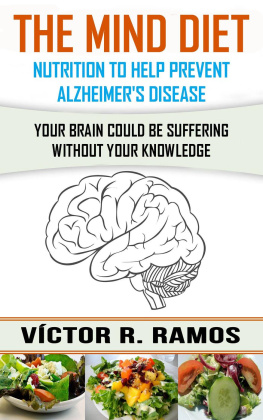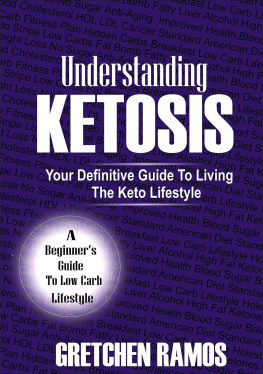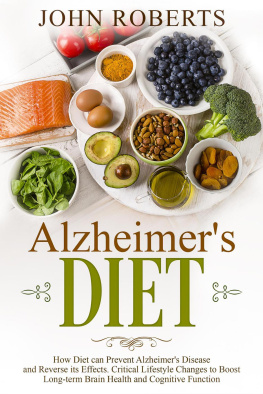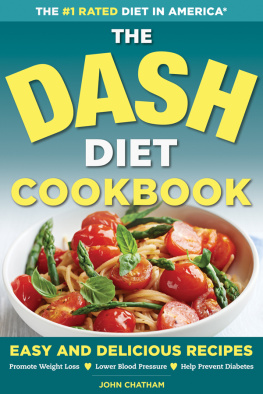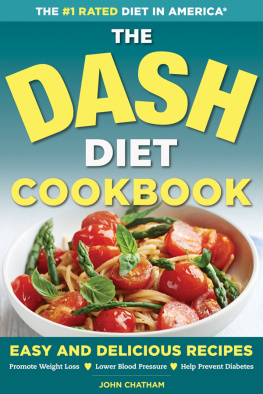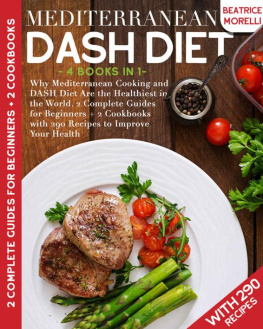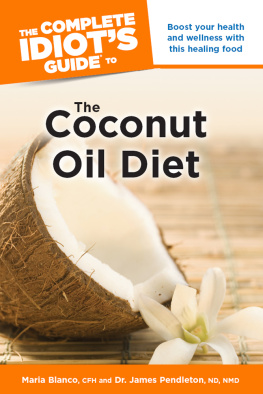The Mind Diet, Nutrition to Help Prevent Alzheimer's Disease
Victor R. Ramos
Translated by Nadia Hleb
The Mind Diet, Nutrition to Help Prevent Alzheimer's Disease
Written By Victor R. Ramos
Copyright 2016 Victor R. Ramos
All rights reserved
Distributed by Babelcube, Inc.
www.babelcube.com
Translated by Nadia Hleb
Cover Design 2016 Sofia Ramos
Babelcube Books and Babelcube are trademarks of Babelcube Inc.
The MIND Diet, Nutrition to Help Prevent Alzheimer's Disease
Your brain could be suffering without your knowledge.
Vctor R. Ramos
All rights reserved. No part of this publication may be reproduced, distributed or transmitted in any form or by any means, without the prior written permission of the author and in accordance with the Copyright Act. For permission requests, write to the author at the address below. The MIND Diet, Nutrition to Help Prevent Alzheimer's Disease, is not intended to give medical advice nor prescribe the use of any method as a form of treatment for physical, emotional or medical problems. This book is written for anyone seeking to maintain his/her health and prevent Alzheimer's disease or dementia as much as possible, but its purpose is only to inform and educate those interested. Only a specialist who knows each particular case is qualified to offer medical advice.
The man who makes everything that leads to happiness depends upon himself, and not upon other men, has adopted the very best plan for living happily.
This is the man of moderation, the man of manly character and of wisdom.
Plato (427?-347? A.C.)
CONTENT
FAQs
How much does it cost?
Will the MIND diet help me lose weight
Is it easy to follow?
Can you drink alcohol?
Are there recipes for the MIND diet?
Will I feel hungry if I follow the MIND diet?
Will I like the taste of ingredients used in the MIND diet?
What is the role of exercise?
Why this book
This book can help you live better.
T he general perception in society today is that our current diet is leading to all kinds of health problems: obesity, cancer, diabetes, cardiovascular diseases and hypertension. Although many try to do something to correct this situation by following fad diets, most only do so to improve their appearance or because they already have health problems.
And what about the brain? We have left it to the mercy of our bad eating habits, preservatives in processed foods, excess sugar and fat, and environmental contaminants. All this happens because our brain does not have pain receptors, so we are not aware of its suffering and deterioration until it is too late. No wonder neurodegenerative diseases have increased dramatically in recent years.
Most likely your brain is suffering at this very moment and you have no way of knowing or finding out, until you start to notice irreversible signs of decline.
Now is the time to make the care of our brain a priority, be aware of the damage we are causing it without realizing, and do everything in our power to maintain the brains health and proper functioning. This will prevent it from declining before the rest of our body, as many people are unfortunately already experiencing.
Over last five years, I have witnessed the symptoms and suffering of neurodegenerative diseases, especially senile dementia and Alzheimers disease, on people and those around them.
Two of my close relatives have suffered from this disease, causing me to investigate, read and study various sources to better understand the disease, its causes and recently discovered methods for preventing or delaying its onset and development. In addition, I have researched the best treatment methods for patients and those affected by the consequences of this terrible disease.
The information found in this publication is a condensed version of what I researched and read in books on the subject, recently published articles in scientific magazines and general interest magazines with reputable sources, as well as my own professional and personal experiences.
I hope that this information is useful.
Vctor R. Ramos
Email:
About the author
V ctor R. Ramos has always been interested in the chemical and nutritional composition of foods, as well as their impact on health. This led him to study Chemistry with a concentration in Nutrition at the National Autonomous University of Mexico (Universidad Nacional Autnoma de Mxico).
His professional experience is diverse, including research laboratories for nutritional products imported by the Mexican government, and pharmaceutical laboratories and companies producing foods and medicines.
He received his Masters of Business Administration at ITAM and continued his career in the administration of multinational companies, offering a holistic perspective on the processes behind the food industry.
Currently, he is pursuing these interests, including the steps of the diet described in this book. His family also has decided to follow this diet in their daily lives.
PART 1
ALZHEIMERS
UNDERSTANDING THE DISEASE
Alzheimers is one of the most feared diseases.
Few people know how to be old.
La Rochefoucauld (1613-1680)
A study done by the MetLife Foundation in February 2011 concluded that Alzheimers disease is the second most feared disease among American adults, only behind cancer. And this fear doesnt just affect older people. (1)
When respondents were asked which of the five current major diseases theyre most afraid of, 31% said Alzheimers disease, while 41% said cancer.
Heart disease and strokes were named at 8% each, while only 6% said they were more afraid of diabetes.
The majority of respondents (62%) admitted they know little to nothing about Alzheimers, which explains why so few are thinking about what to do in case they or their family members get the disease.
Only 18%, less than one in five, have developed a plan that includes options for care, living arrangements and/or financial planning.
Today, more than five million people in the United States have Alzheimers disease.
That number is expected to increase dramatically over the next 20 years.
44% of surveyed adults indicated that they have family members or friends with Alzheimers.
In summary, the general population is afraid and has little understanding of Alzheimers disease.
Almost a fourth of adults (23%) are extremely or very worried that someday theyll get Alzheimers disease or have to care for a loved one with the disease, while at the same time, 62% know little or nothing about the disease.
Current situation.
No one is so old as to think that he cannot live another year.
Cicero (106-43 A.C.)
T he main chronic diseases that affect todays society are:
Diabetes
Neurological disorders
Cardiac and vascular diseases
Cancer
Depression
Autoimmune diseases
Our life expectancy is higher than previous generations, in large part from the decrease in infant mortality rates and improved pediatric health, i.e. weve become better at surviving accidents and childhood diseases. Today, this has led to preventable and non-communicable diseases causing more deaths worldwide than all the others combined.
Diabetes and neurological diseases are some of the most costly and harmful conditions today; however, theyre preventable and linked in a very specific way: having diabetes increases your risk of developing Alzheimers.
We can consciously prevent many nervous system disorders, and even cognitive deterioration, to the same extent that we can avoid heart disease: by eating well and exercising, since the origin of neurological diseases is often predominantly nutritional.
Next page
